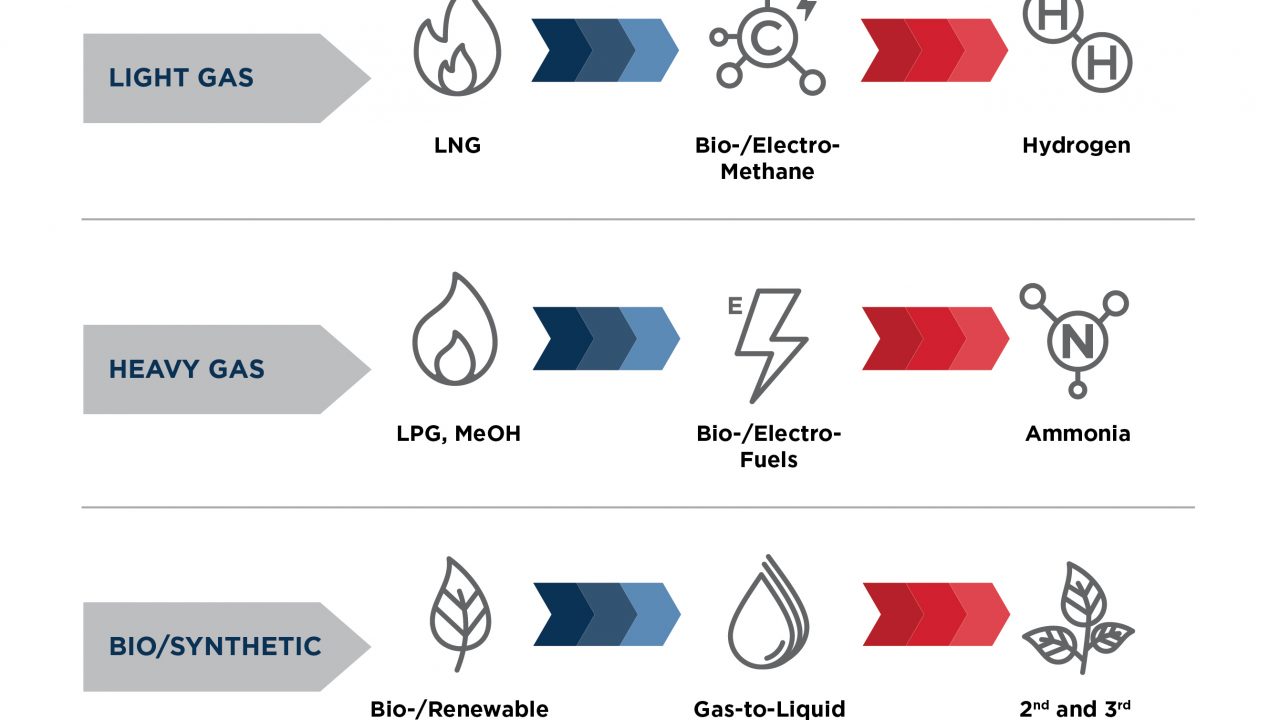ABS simplifies options into three pathways
Posted on: 15 October 2020
LNG and hydrogen are viewed as frontrunners to be the fuels that will help shipping reach IMO decarbonization ambitions, according to a new ABS survey.
LNG was the solution to the 2050 emissions target for 47 percent of respondents to the ABS Future Fuels LinkedIn Survey, while hydrogen was the answer for 40 percent.
Just eight percent opted for ammonia and five per cent for methanol. LNG was again the dominant fuel option to get the industry to 2030 targets, securing the support of 64 percent of respondents, against 22 percent for hydrogen and seven percent each for ammonia and methanol.
The results illustrate the challenges facing shipowners in developing fleets that meet and exceed IMO targets.
“Owners of internationally trading ships are facing increasingly complex investment decisions as they try to navigate the most efficient course to the low-carbon future, which is why ABS has moved to simplify the landscape by identifying three fuel pathways potentially open to shipping,” said Christopher J. Wiernicki, ABS Chairman, President and CEO.
“The first pathway is defined as ‘Light Gas’, using generally light, small molecule fuels with high energy content, but more demanding, mainly cryogenic fuel supply systems and storage. This group includes the relatively mature methane (as LNG) solution leading towards bio-derived or synthetic methane, and ultimately to hydrogen as fuel,” said Wiernicki.
“On this pathway, if methane slip is discounted, LNG can reduce GHG emissions by approximately 20 percent; bio-methane can be carbon neutral, while hydrogen is a zero-carbon fuel. Hydrogen can serve as the ultimate solution along this pathway, but it will necessitate significant technical advances, which may require a decade or more, until it becomes a practical solution.
“The second pathway is defined as ‘Heavy Gas’, by using generally heavier, more complex molecules, but with less demanding fuel supply and storage requirements than the light gas pathway. This group includes LPG, methanol and ethanol, leading to bio-derived or synthetic LPG/methanol and ultimately to ammonia.”
He added: “On this pathway, methanol can reduce CO2 by approximately 10 percent, while bio-methanol can be carbon neutral, and ammonia is a zero-carbon fuel. While ammonia shows considerable promise as a fuel, the technology for its application still needs to be developed, and regulations must account for its particular safety considerations.
“The third pathway hinges on bio/synthetic fuels that are derived from renewable sources and can produce liquid fuels. These fuels have similar properties to diesel oil and thus are much less demanding in terms of new infrastructure and technologies onboard and can be utilized with minimal changes to current ship designs. In the future, a third generation of biofuels, such as lignocellulosic or algae-based fuels could potentially provide the industry with almost 500 million tons of fuels annually, more than the current annual bunker demand. This group includes electro/synthetic Gas-to-Liquid (GTL) fuels produced though either carbon capture and electrolysis, or from converting biomass to syngas and then to liquid fuels such as methanol or diesel.”
But which particular pathway makes sense for a shipowner to focus on will depend the operational profile and trade of the vessel, cautioned Wiernicki.
“In all likelihood, the fleet of the future will be fueled by a variety of choices, including oil, that will be selected depending on the owner’s operational preferences,” he said. “Although we are fuel and technology agnostic, ABS focuses on working across the board to help owners not only reach their decarbonization and sustainability targets but hit them successfully, while maintaining a laser focus on safety.”




